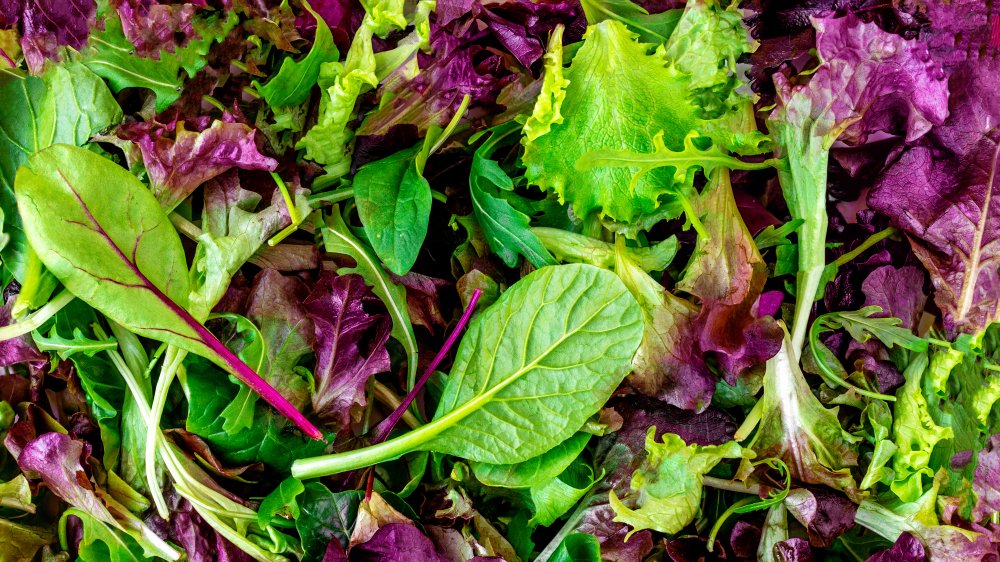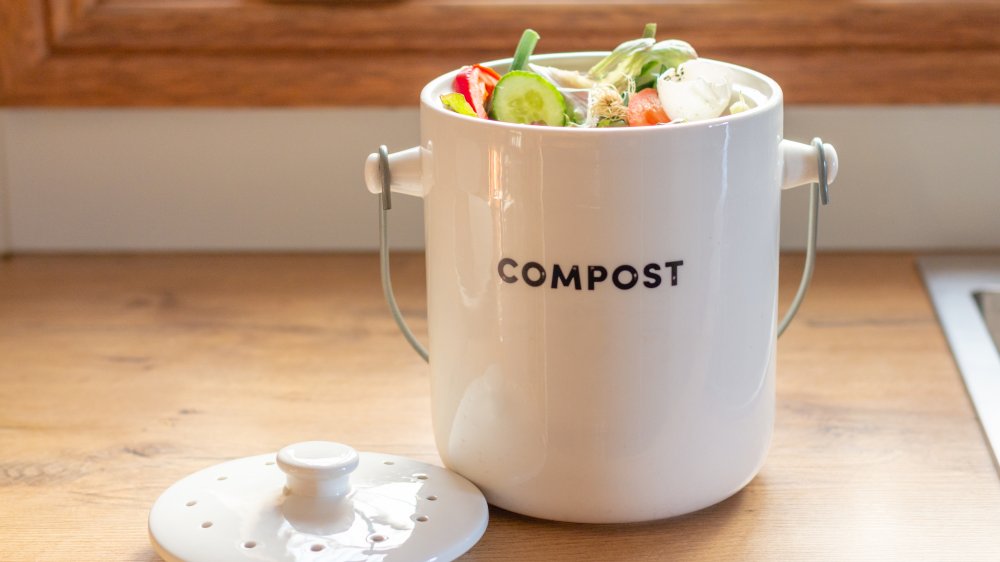Why You Should Never Throw Away Extra Salad Greens
We've all stood in front of the refrigerator holding a sad bag of sad-looking salad greens that we totally forgot about. Thankfully, there are still ways to revive and use extra or leftover salad greens as long as they're not wilted past the point of being edible. While a salad might not be in the cards anymore, you can still plan on eating them.
When salad greens are no longer good enough to be used in a salad, it's always possible to cook them. Salad greens tend to be baby or young iterations of greens, so they are particularly tender, which means they'll cook fast, too. If you use moderate heat, the greens will be done in a matter of minutes and can be seasoned with almost anything you choose. Things like garlic, onion powder, salt, red pepper flake, or other herbs are all great ways to boost the flavor (via The Kitchn).
The best part is, if cooked salad greens do not sound incredibly appetizing on its own, they can then be added to a number of other dishes. Things like greens-filled scrambled eggs, omelets, stir-fries, and even pasta dishes can be elevated with seasoned and cooked baby salad greens.
Other options for extra salad greens
If you prefer not to cook your extra salad greens and add them to other dishes, you certainly have other options. Expiring salad greens make a good addition to smoothies or in sauces like pesto. If you have whole greens like a head of iceberg lettuce, consider tossing it on the grill (via Farm Drop).
If the extra salad greens are past the point of cooking them, then you still might not want to throw them away. Lettuce and other kinds of greens produce more greenhouse gasses than bacon when disposed of in the trash, according to Scientific American.
So, for an environmentally-friendly means of disposing of salad greens past the point of eating them, you might want to consider starting a kitchen compost bin. By collecting extra leftover salad greens in a kitchen compost bin, the produce will breakdown and form rich compost. It's essentially great food for growing more food in your own garden or pots of herbs and other vegetables. If you cannot use compost at home, however, you can likely give it to a community garden or farmers market vendors who can use it (via The Kitchn).

